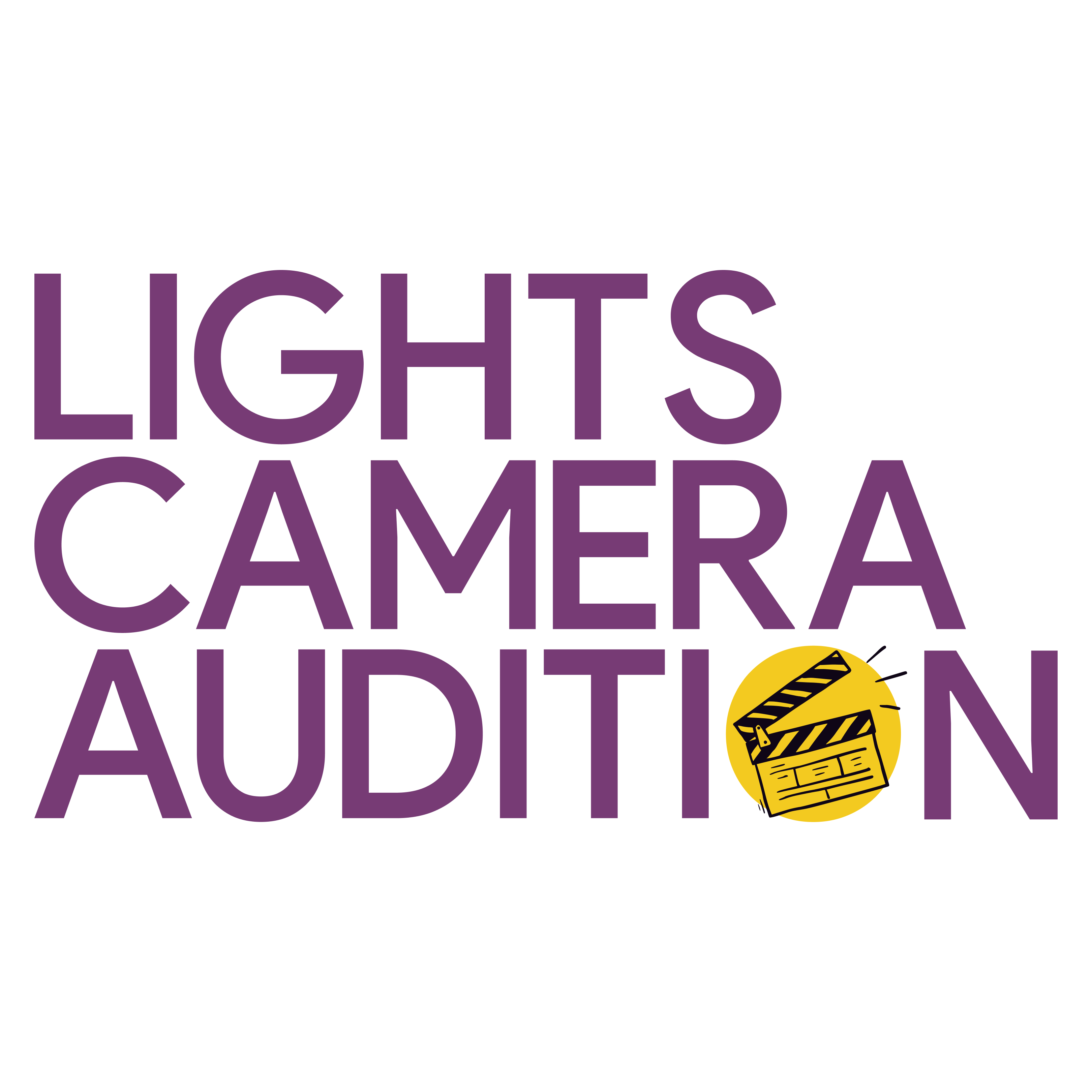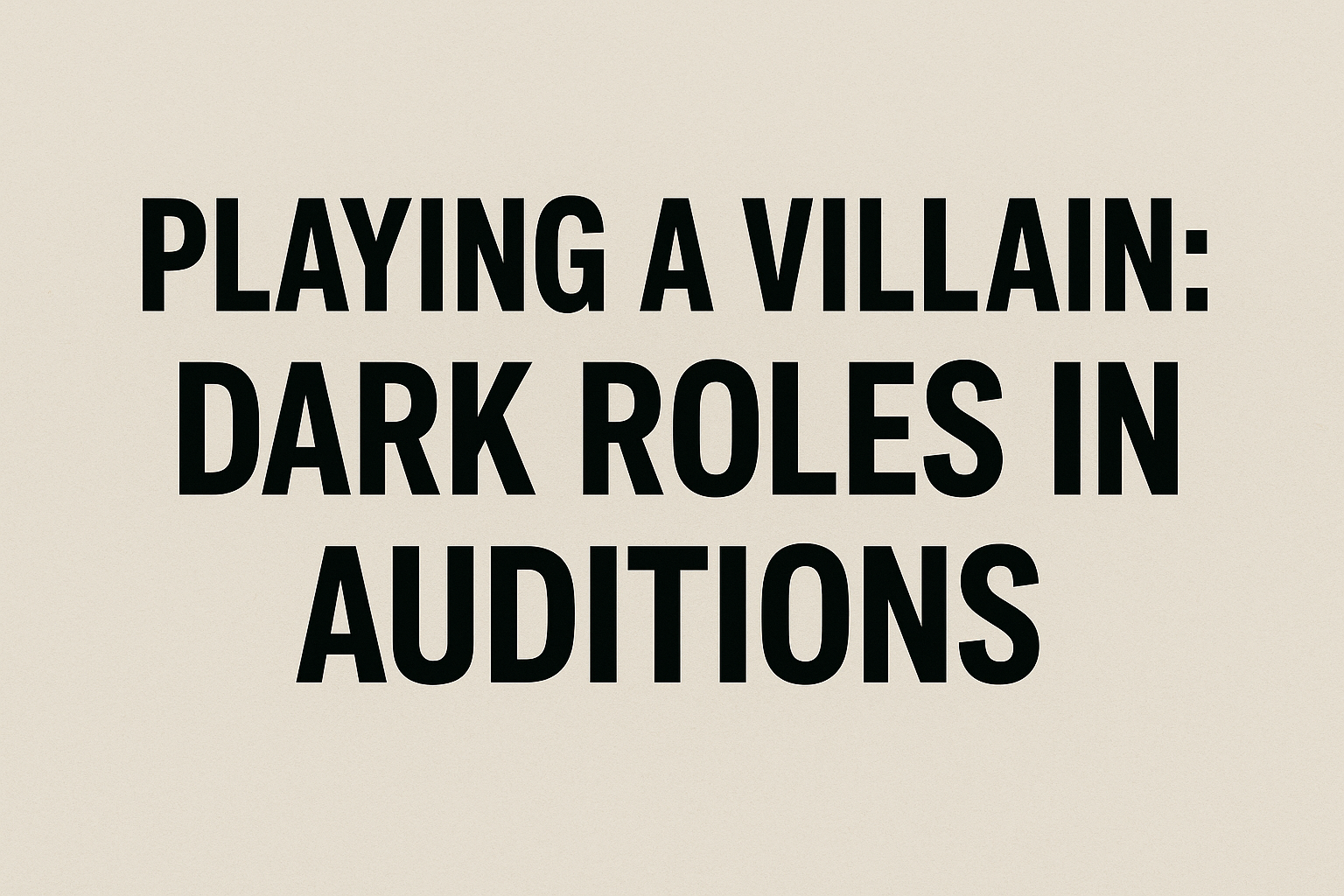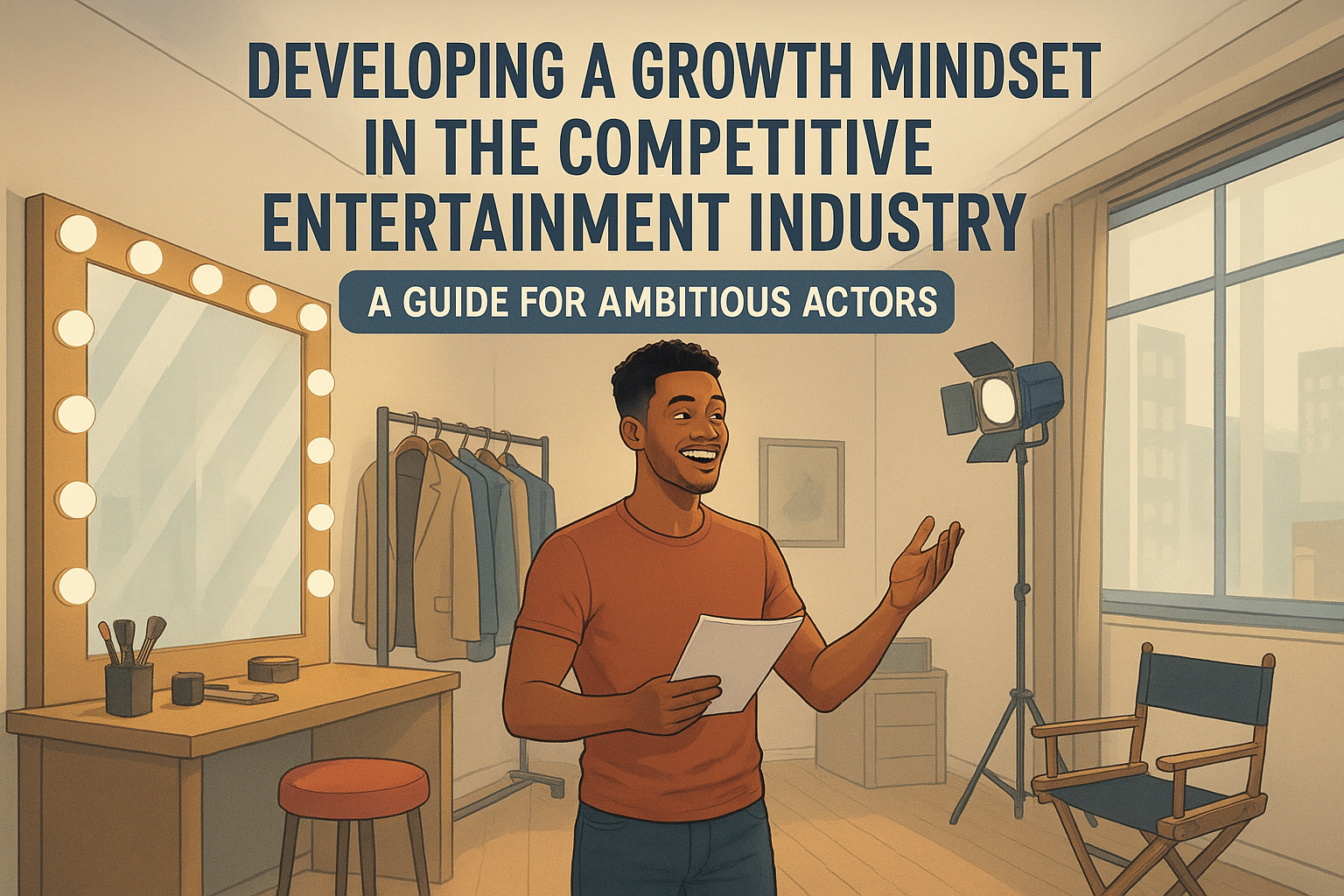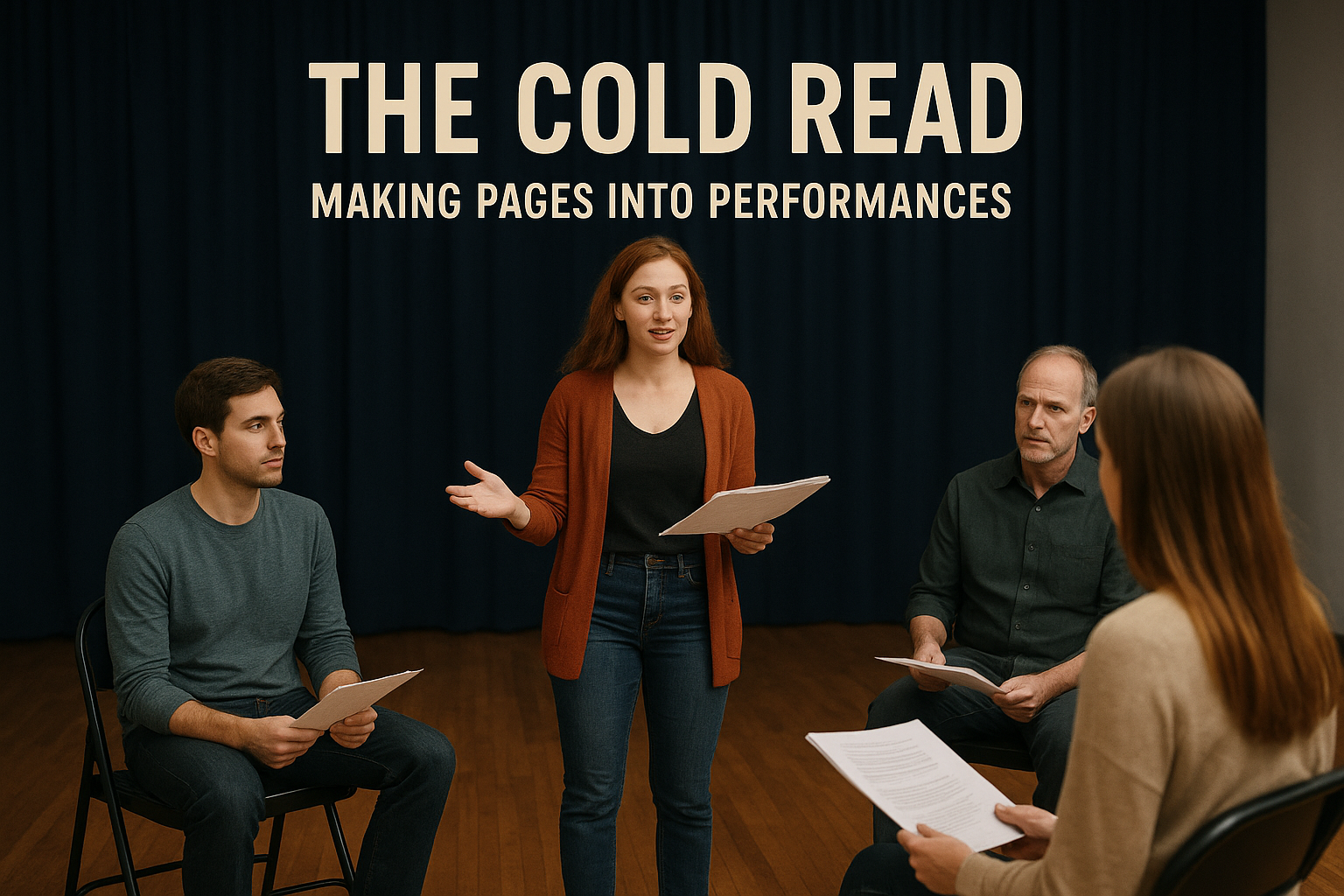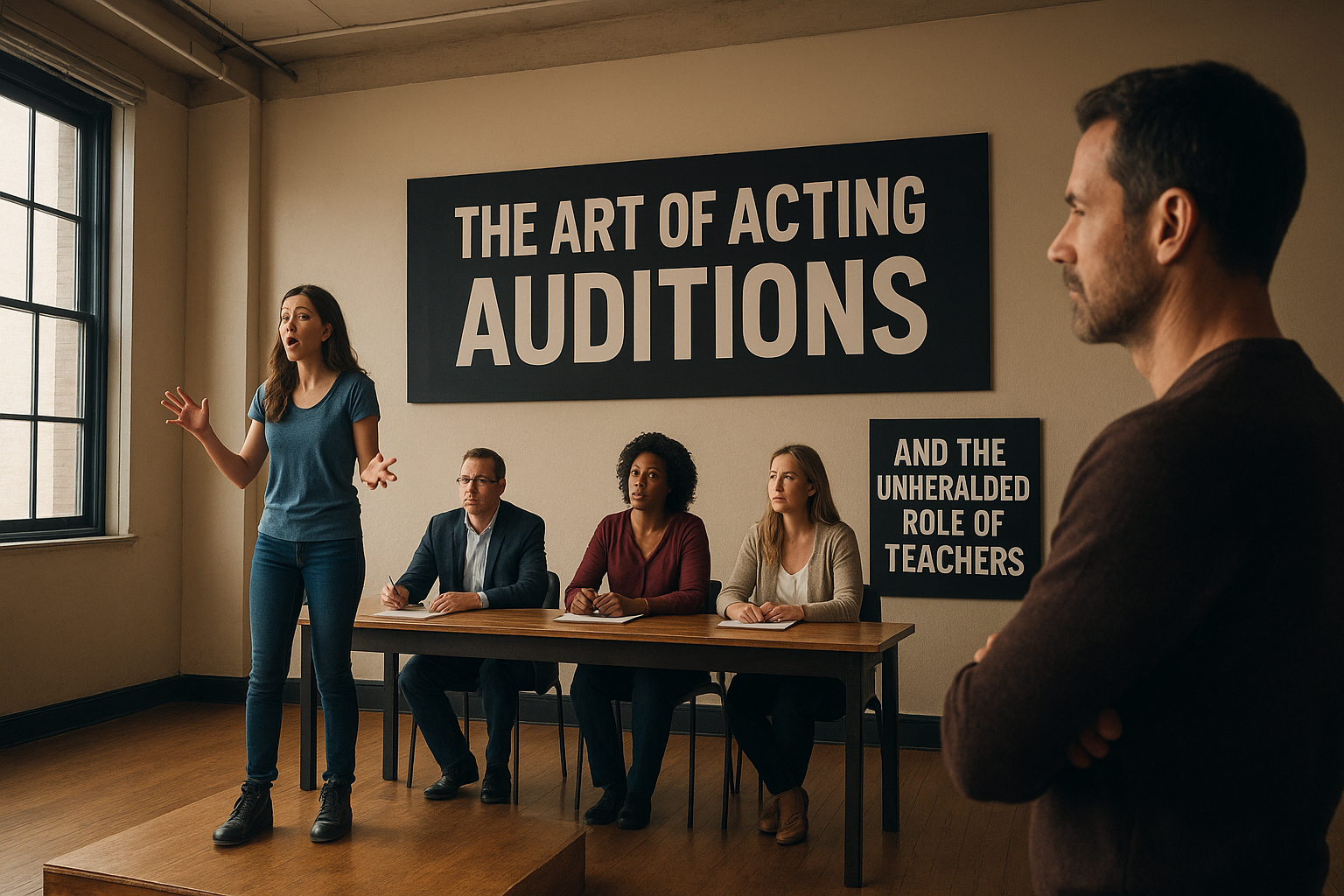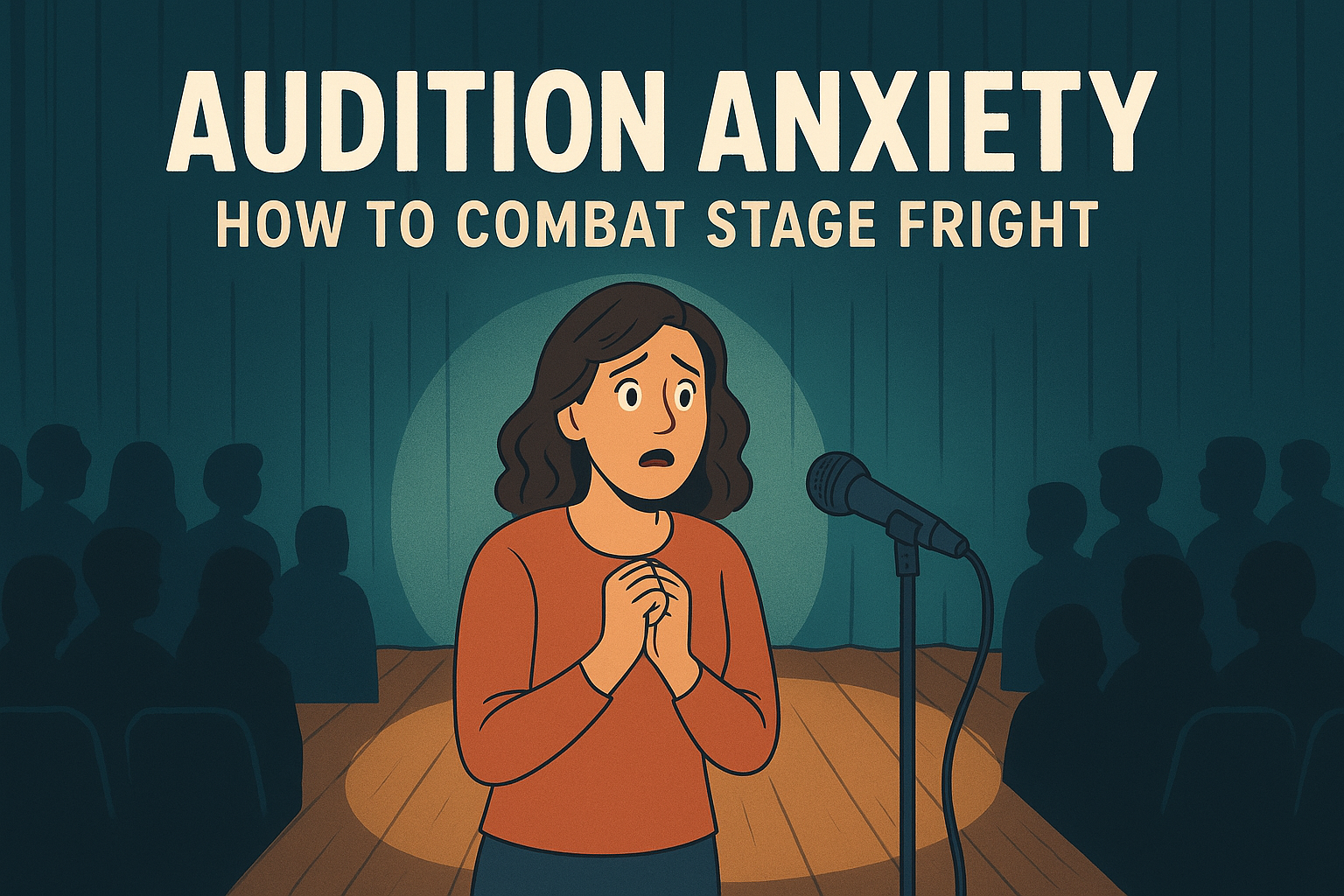
Whether you're about to enter the spotlight for a dance audition, acting call, or singing performance, audition anxiety is an all too real and universal phenomenon—even for professional performers. The stress of doing well in front of casting directors, judges, or an audience can elicit nervousness, self-doubt, or even outright stage fright. But there's good news here: anxiety doesn't have to get the best of you. With the right skills and attitude, you can defeat stage fright and shine with confidence.
Here, we'll discuss the reasons for audition anxiety and provide useful, proven tips to enable you to overcome your nerves and shine at your best.
What Is Audition Anxiety?
Audition nervousness, or performance fright, is a type of performance anxiety that happens when you need to showcase your talent before others. It can occur physically (sweaty hands, pounding heart, dry mouth), emotionally (fear, panic, self-doubt), and mentally (pounding head, blocked memories, derogatory self-talk).
It's the natural reaction of the mind to a "threat," and auditions can feel like a high-stakes game. But just because it's natural doesn't mean it's uncontrollable.
Why Do We Get Nervous During Auditions?
Knowing the underlying causes of anxiety will help you approach it more rationally:
Fear of Judgment: You're being judged, which can be daunting.
Desire to Impress: The need to get the part or make an impression raises tension.
Perfectionism: High expectations from yourself can create unnecessary tension.
Lack of Preparation: Feeling unready fuels insecurity.
Previous Negative Experiences: Past failures can resurface and affect current performance.
1. Prepare Like a Pro
Confidence starts with preparation. If you’re auditioning for an acting role, know your lines backward and forward. If it's a dance performance, practice until the choreography feels like second nature. Preparation gives your brain fewer things to worry about.
Tips:
Practice in front of a mirror or record yourself to critique and enhance.
Practice the audition environment as closely as possible.
Practice the piece repeatedly to develop muscle memory.
2. Learn to Breathe Through It
Breathing is an extremely useful tool for fighting anxiety. When you're anxious, you breathe shallowly, which sends stressful signals to your brain.
Practice this easy trick before going into the audition room:
Breathe in slowly for 4 counts.
Hold for 4 counts.
Breathe out for 6 counts.
Do 3–5 repetitions.
This calms your nerves and grounds your focus in the present moment.
3. Visualize Success
Visualization is a favorite tool of performers and athletes alike. Shut your eyes and picture yourself performing confidently, nailing each move, line, or note with ease. Visualize the casting director smiling or nodding appreciatively.
Positive mental imagery assists in reprogramming your subconscious to anticipate success instead of dreading failure.
4. Direct the Focus Elsewhere
Sometimes anxiety arises from being too self-centered. You're concerned with how you appear, sound, or are perceived. Attempt turning things around.
If you're an actor: Consider telling the story via your character.
If you're a dancer: Concentrate on expressing emotion or rhythm to the crowd.
If you're a singer: Relate to the words and the emotions behind them.
When your attention is on the message rather than your performance, nerves automatically decrease.
5. Accept the Nerves
Paradoxically, resisting nervousness can exacerbate it. Rather than attempting to fight your nervousness, accept it. Tell yourself, "It's okay to be nervous. This means I care."
Shifting your nerves to excitement can also work. Both feelings trigger comparable physiological reactions—so remind yourself, "I'm excited to perform," not "I'm afraid."
6. Get Used to Performing in High-Pressure Situations
The more you get used to being under high pressure, the less daunting it'll feel. Seek out ways to:
Perform for friends or relatives.
Go to mock auditions or open mic nights.
Take acting or dance classes where you perform before fellow students.
Repeated exposure desensitizes you to the pressure and develops resilience.
7. Remain Grounded and Present
Anxiety tends to draw you into the "what-ifs" of the future. Grounding techniques have the potential to return you to the present.
Use this quick grounding technique:
Notice 5 things you can see.
Notice 4 things you can touch.
Notice 3 things you can hear.
Notice 2 things you can smell.
Notice 1 thing you can taste.
This exercise of mindfulness quiets your mind and grounds you in reality.
8. Mind the Progress, Not the Perfection
No perfect audition exists. Even pros mess up or forget their lines. It's your dedication, passion, and being there that counts more.
Rather than striving to be perfect, try to:
Be yourself.
Remain in character or movement.
Recover elegantly if something goes awry.
Blunders do not make you—your response to them does.
9. Prepare Your Body Before the Audition
Your body and mind are connected. Don’t neglect your physical well-being:
Get enough sleep the night before.
Eat a light, healthy meal.
Stay hydrated.
Avoid too much caffeine.
Also, give yourself enough time to reach the venue calmly. Rushing increases anxiety.
10. Remember: Auditions Are a Two-Way Street
You're not only being evaluated—you're also testing to see if the production or role is suitable for you. Approach it as a professional experience and not a personal challenge.
Every audition is an education, and every experience enhances you.
Stage fright is absolutely normal, but it doesn't have to stop you. With preparation, mindset changes, and the right methods, you can transform nervous energy into high-performance energy.
The secret is to keep showing up, keep practicing, and keep trusting in your growth. Every audition gets you closer to your dreams—not only as a performer, but as a confident, resilient artist.
When it comes to acting, playing a villain is considered a challenge and a golden chance. Villains are multilayered, multi-dimensional, and probably the most remembered characters in a narrative. Be it old Bollywood films such as Gabbar Singh from Sholay or OTT villains such as Guruji from Sacred Games, dark roles determine an actor's fate. But auditioning for a villain is an altogether different. It needs a firm grasp of psychology, body language, and emotional regulation. If you're a newbie or a seasoned actor wanting to master your craft, this blog will walk you through all that you need to know on how to audition for villainous roles.
In the high-stakes, emotionally demanding world of acting, rejection is frequent, uncertainty is constant, and comparison can feel unavoidable. The entertainment industry is as competitive as it gets—and in such an environment, your mindset can make or break your journey. While talent, networking, and luck all play their part, there's one internal tool that can drastically shift your trajectory: a growth mindset.
There is a moment every actor fears: the casting director places a script in your hands you've never laid eyes on before and says, "Take a minute, and when you're ready, we'll begin. Welcome to the cold read — perhaps the most unpredictable, yet vital portion of an actor's career. Whether you're auditioning for theater, television, or voiceover, cold reading is the skill that can break or make your chance at a role. But the good news is this: like every other craft, it can be practiced, honed, and eventually mastered. In this post, we will analyze what cold reading actually is, why it's important, and how you can transform a cold script into a warm, breathing performance.
In showbiz, auditions for acting are the initial and most often essential step toward a dream. For aspiring actors, an audition is not simply reading lines or acting in front of a casting director—it's a moment of exposure, innovation, and bravery. But behind every assured performance are years of education, instruction, and mentoring. And on Teachers' Day, it is only appropriate that we acknowledge the unseen architects of every actor's journey—their teachers.
Lights Camera Audition!
Don't miss out on the latest updates, audition calls, and exclusive tips to elevate your talent. Subscribe to our newsletter and stay inspired on your journey to success!
